
Vitamin D Can Reduce Tooth Decay by 50%, Study Finds: A Natural Solution to Dental Health
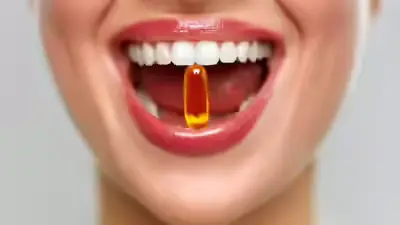
Tooth decay is one of the most common and costly dental issues worldwide, affecting both children and adults. A recent study has found that a simple and affordable nutrient, vitamin D, could be the key to reducing tooth decay by as much as 50%. Forget about expensive dental appointments — incorporating vitamin D into your daily routine could provide significant benefits for your oral health.
The Link Between Tooth Decay and Vitamin D
A comprehensive review of clinical trials published in Nutrition Reviews explored the relationship between vitamin D levels and the occurrence of tooth decay, commonly referred to as dental caries. The study concluded that adequate levels of vitamin D in the body significantly reduced the rate of tooth decay.
Vitamin D plays an essential role in maintaining overall health, and its benefits extend far beyond bone health. The review highlights that vitamin D helps to promote mineralization in teeth, making them more resistant to decay.
What Is Vitamin D?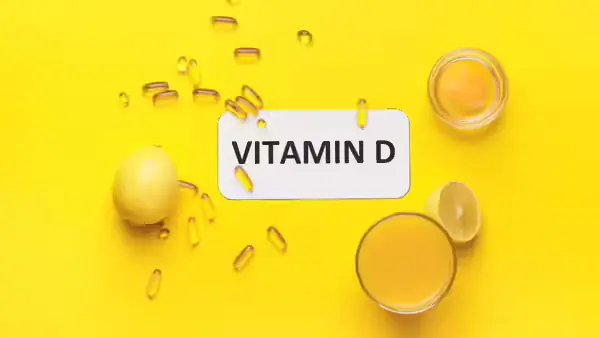
Vitamin D is a fat-soluble vitamin that is crucial for the body’s ability to absorb calcium and phosphorus — two vital minerals for healthy teeth and bones. The body can produce vitamin D when exposed to sunlight, and it is also found in various food sources, such as fatty fish, fortified dairy products, egg yolks, and certain types of mushrooms.
Vitamin D’s Role in Preventing Caries
Vitamin D directly influences the balance of minerals in your teeth. It enhances calcium absorption, which strengthens tooth enamel and reduces the risk of tooth decay. The enamel is the protective outer layer of your teeth, and when it's weakened, bacteria can more easily cause cavities. Vitamin D’s ability to promote stronger enamel makes it a powerful nutrient for preventing tooth decay.
Several studies have shown that individuals with higher vitamin D levels experience fewer dental issues, including cavities. By supporting healthy enamel formation, vitamin D plays a protective role in maintaining oral health.
How to Increase Vitamin D Intake
While getting sufficient sunlight is one of the easiest ways to boost your vitamin D levels, many people struggle to get enough sun exposure, especially in areas with limited sunlight or during the winter months. In such cases, dietary sources and supplements become essential.
-
Sun Exposure: Aim for 10-30 minutes of sun exposure several times a week, depending on your skin type and location.
-
Dietary Sources: Foods rich in vitamin D include fatty fish (like salmon and mackerel), fortified milk, cheese, and egg yolks.
-
Supplements: If you're not getting enough vitamin D through sunlight or food, supplements can be an effective way to fill the gap. Speak to your healthcare provider about the right dosage for your needs.
The Bottom Line: Prevent Tooth Decay Naturally
Incorporating vitamin D into your daily routine could offer significant benefits for your oral health. By supporting healthy enamel and improving calcium absorption, vitamin D helps reduce the risk of tooth decay by up to 50%. It’s a natural and cost-effective solution that can complement regular oral hygiene practices like brushing, flossing, and regular dental checkups.
References:
-
Nutrition Reviews, "The Role of Vitamin D in Preventing Tooth Decay," 2020.
-
American Dental Association, "Understanding Tooth Decay and Prevention," ADA.org.
-
National Institutes of Health (NIH), "Vitamin D and Health," nih.gov.
By prioritizing your vitamin D intake, you can take an active role in preventing tooth decay and ensuring a healthier smile for years to come.
News in the same category

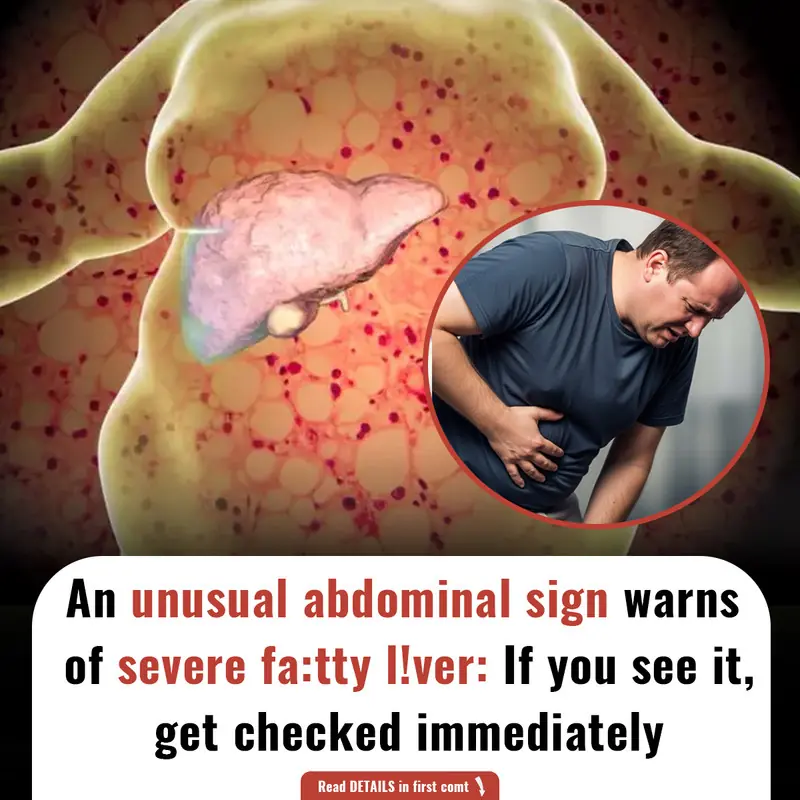
An unusual abdominal sign warns of severe fa:tty l!ver: If you see it, get checked immediately.
A gastroenterologist has suggested how to recognize fatty liver disease from an unusual sign in the abdomen.

A 33-year-old woman with metastatic canc3r is healthy 3 years later thanks to consistently doing one thing: "If I'd waited longer, things would be different."
Stunned after receiving the health check results, the 33-year-old woman still felt fortunate because she had detected the dangerous disease in time and still had a chance for treatment.

Don't buy these 3 kinds of oysters; even seafood shop owners won't let their families consume them.
If you want to buy good and clean oysters to eat, you must immediately avoid these types.

Straight vs. curved cucumbers: Which tastes better? My mother, with 40 years of farming experience, shares 3 key secrets.
The 'beautiful' things may have deceived you!

Beyond superstition: 5 items placed at your bedside secretly "drain" your health, leaving you more tired the more you sleep.
Green pots, plush bears, and small decorative items are all commonly seen objects in the bedrooms of many families. However, they can completely affect your health.

Is showering 2-3 times a day good in hot weather? Doctors warn certain bathing habits increase stroke risk.
In hot weather, many people have the habit of showering 2-3 times a day to cool down their bodies. However, is this habit good for health?

A 22-year-old man developed k!dney failure, fa:tty l!ver, and gout simultaneously, regretting drinking one type of beverage for four years.
A 22-year-old young man named Wang Yi, from Taiwan (China), went for a check-up and was unexpectedly diagnosed with kidney failure, fatty liver disease, and gout.

Eating too much of these 5 vegetables is like "poisoning" your liver, and the first one is on almost every family's dinner table.
The liver is an important detoxifying organ of the body. However, some familiar vegetables in daily meals can become silent 'enemies,' harming the liver if not used properly.

Woman suffers severe consequences after using bee stings to treat breast canc3r
Having breast cancer but not going to the hospital for treatment, instead opting for honeybee stings at home, the woman in Ho Chi Minh City has to bear the heavy consequences as the tumor complicates and metastasizes to many places.

Everyone knows canc3r can be hereditary, but which types of cancer have a higher risk?
Some hereditary cancers related to genetic mutations, such as breast cancer, ovarian cancer, and prostate cancer, can be managed and screened early thanks to genetic counseling.

Prolonged "minor ailments" could indicate canc3r, so beware of these 7 signs.
If you continuously experience headaches, loss of appetite, dry cough, and continuous weight loss... you need to see a doctor immediately as this could be a sign of cancer.
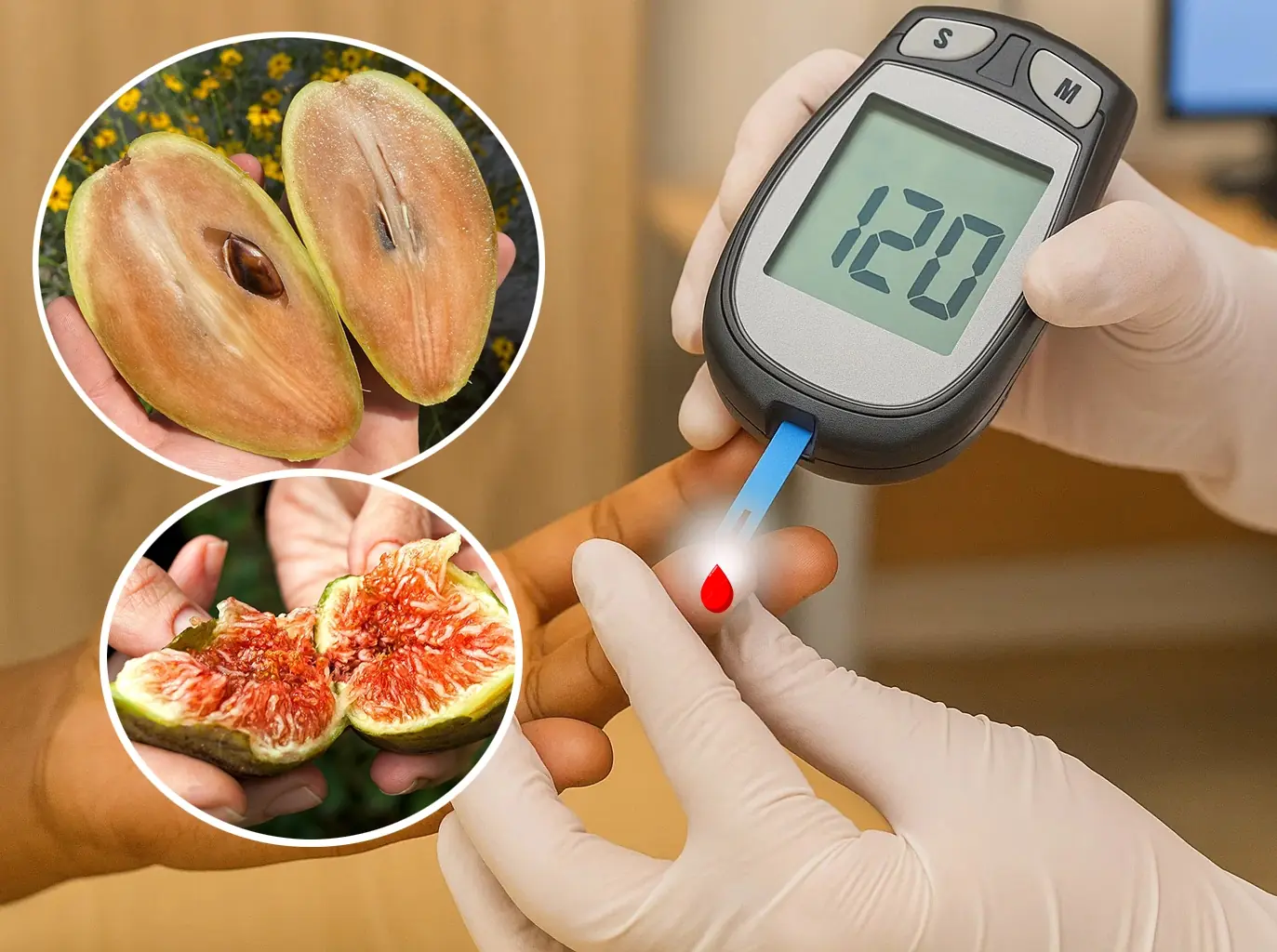
8 types of fruit that contain a lot of sugar should be limited to reduce the risk of diabetes and protect health
Fruit is good for you, but certain kinds contain a lot of sugar. Overeating can impact your health by raising blood sugar levels.

Hidden St0mach Canc3r Risk: How H. Pylori Infection Can Lead to Silent Canc3r and What You Need to Know
Learn about the link between Helicobacter pylori infection and stomach canc3r. Discover how this common food and waterborne bacteria could lead to silent canc3r and how early detection and treatment can help prevent it.

5 Simple Habits to Slash Heart Att@ck and Stroke Risks - Experts Reveal the Secrets
Discover 5 easy daily habits that can significantly reduce the risk of heart attack and stroke. From exercise to diet, learn how small lifestyle changes can protect your heart and improve overall health.

4 Visible Signs of Fatty Liver Dise@se on Your Face and How to Recognize Them
Discover the 4 common facial signs of fatty liver disease (NAFLD) like puffiness, skin discoloration, and acne. Learn how liver health affects your skin and when to seek medical help.

Top 3 Seeds and 3 Drinks to Reduce Bloating, According to a Renowned Gastroenterologist
Discover the top seeds and drinks recommended by Dr. Saurabh Sethi to reduce bloating. Learn about sesame, flax, chia seeds, and drinks like ginger tea, kefir, and more.

There's a secret on b33r bottle caps: Target this point to open them easily by hand.
Many people have used their teeth, the edge of a table, or the armrest of a chair to open beer bottle caps – both dangerous and likely to cause damage. In fact, there is a special 'weak point' on beer bottle caps. Just aim correctly at this spot, and yo
News Post

When washing dishes, follow this method to remove all chemicals: Don't rush and risk "eating" detergent.

An unusual abdominal sign warns of severe fa:tty l!ver: If you see it, get checked immediately.
A gastroenterologist has suggested how to recognize fatty liver disease from an unusual sign in the abdomen.

A 33-year-old woman with metastatic canc3r is healthy 3 years later thanks to consistently doing one thing: "If I'd waited longer, things would be different."
Stunned after receiving the health check results, the 33-year-old woman still felt fortunate because she had detected the dangerous disease in time and still had a chance for treatment.

Don't buy these 3 kinds of oysters; even seafood shop owners won't let their families consume them.
If you want to buy good and clean oysters to eat, you must immediately avoid these types.

Straight vs. curved cucumbers: Which tastes better? My mother, with 40 years of farming experience, shares 3 key secrets.
The 'beautiful' things may have deceived you!

Beyond superstition: 5 items placed at your bedside secretly "drain" your health, leaving you more tired the more you sleep.
Green pots, plush bears, and small decorative items are all commonly seen objects in the bedrooms of many families. However, they can completely affect your health.

Is showering 2-3 times a day good in hot weather? Doctors warn certain bathing habits increase stroke risk.
In hot weather, many people have the habit of showering 2-3 times a day to cool down their bodies. However, is this habit good for health?

A 22-year-old man developed k!dney failure, fa:tty l!ver, and gout simultaneously, regretting drinking one type of beverage for four years.
A 22-year-old young man named Wang Yi, from Taiwan (China), went for a check-up and was unexpectedly diagnosed with kidney failure, fatty liver disease, and gout.
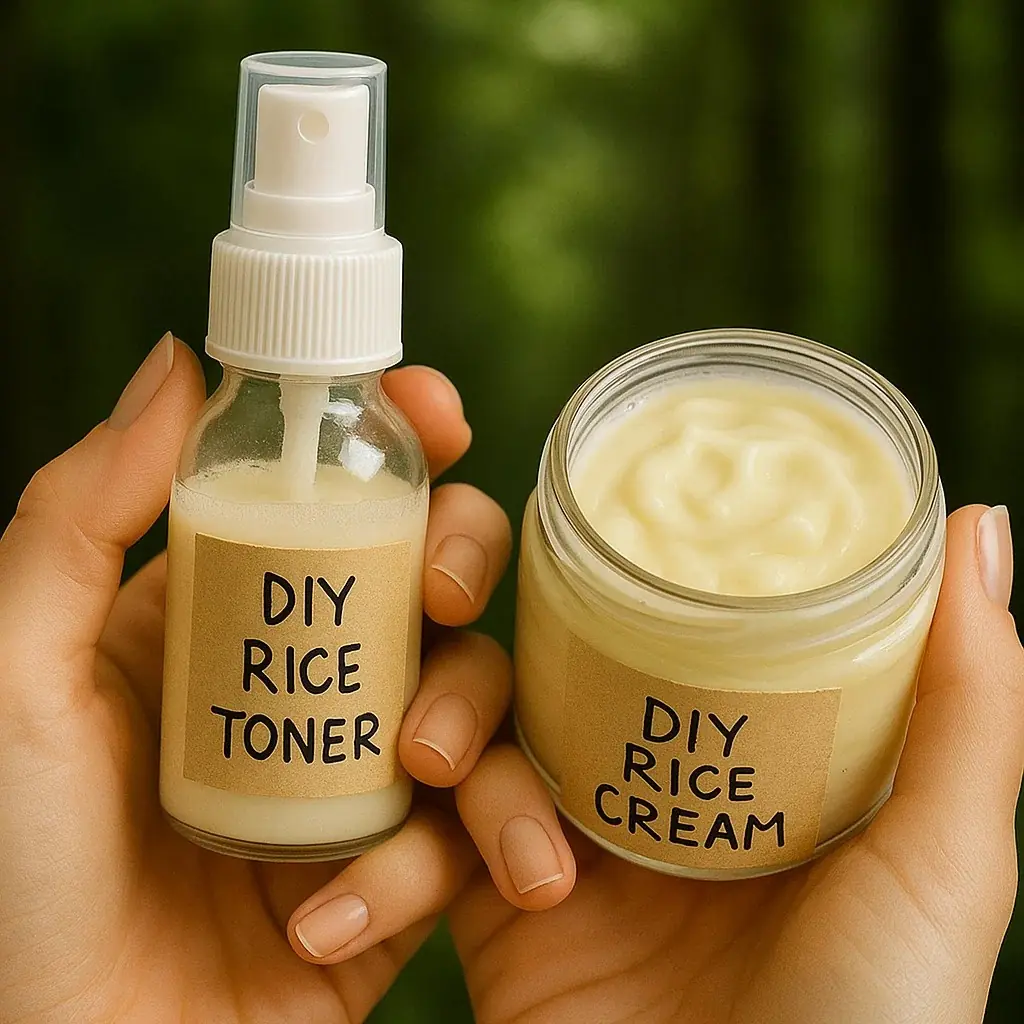
2-Step Korean-Inspired Glowup Routine: Achieve Radiant, Youthful Glass Skin At Home
The combination of rice, flaxseed, and other nourishing ingredients offers numerous benefits, from boosting hydration to fighting free radicals and improving skin texture. Follow this routine consistently, and you’ll be on your way to achieving the cove

Eating too much of these 5 vegetables is like "poisoning" your liver, and the first one is on almost every family's dinner table.
The liver is an important detoxifying organ of the body. However, some familiar vegetables in daily meals can become silent 'enemies,' harming the liver if not used properly.

The Legacy of Ruby Middleton Forsythe: A Lifelong Advocate for Education and Civil Rights
Discover the inspiring life of Ruby Middleton Forsythe, a dedicated educator who shaped the future of African-American children in South Carolina, teaching for over six decades despite adversity.

A 14-Year-Old’s Work Ethic: How One Young Girl’s Determination is Shaping Her Future
Discover the inspiring story of a 14-year-old girl who took the initiative to get a job, worked hard, and is saving for her future. Learn how determination and responsibility are shaping her dream to become a doctor.

Woman suffers severe consequences after using bee stings to treat breast canc3r
Having breast cancer but not going to the hospital for treatment, instead opting for honeybee stings at home, the woman in Ho Chi Minh City has to bear the heavy consequences as the tumor complicates and metastasizes to many places.

Mid-Flight Miracle: How a WestJet Flight Attendant Became a Baby-Whispering Hero
A family's challenging flight with a crying 4-month-old was transformed by the extraordinary kindness of a WestJet flight attendant. Discover this heartwarming story of empathy and going above and beyond in customer service.

Quiet Strength and Southern Grace: The Unseen Heroism of a Mother-in-Law Named Sharon
Discover the powerful story of Sharon, a mother-in-law whose quiet resilience and unwavering love carried her family through cancer, caregiving, and grace under pressure.

The Wisdom of Experience: How a $10 Withdrawal Taught a Bank Teller a Priceless Lesson
An elderly customer's request for a $10 withdrawal led to a viral moment of hidden wisdom. This compelling story reveals how patience and respect for elders can transform interactions, offering a powerful lesson in customer service and human dignity.
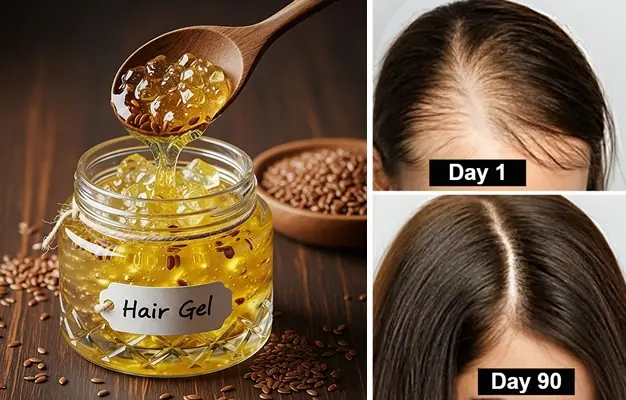
DIY Flaxseed Gel & Okra Hair Gel for Natural Hair Growth and Frizz-Free Shine
By incorporating these DIY treatments into your routine, you can achieve healthier, shinier, and fuller hair—without relying on harsh chemicals or expensive products.

Everyone knows canc3r can be hereditary, but which types of cancer have a higher risk?
Some hereditary cancers related to genetic mutations, such as breast cancer, ovarian cancer, and prostate cancer, can be managed and screened early thanks to genetic counseling.

Katherine Swynford: From Mistress to Duchess and the Legacy of Love and Power
Discover the extraordinary life of Katherine Swynford, from a lady-in-waiting to a duchess, her deep love story with John of Gaunt, and the lasting impact of her children, the Beauforts, on English history.

Prolonged "minor ailments" could indicate canc3r, so beware of these 7 signs.
If you continuously experience headaches, loss of appetite, dry cough, and continuous weight loss... you need to see a doctor immediately as this could be a sign of cancer.